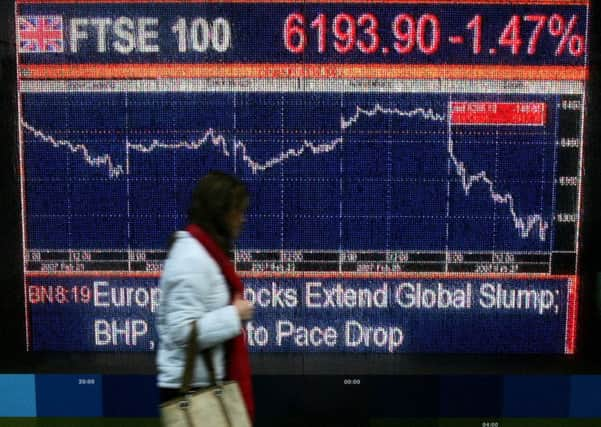Brian Monteith: Fake news shows us that some want the UK to fail


Two weeks ago the Office of National Statistics (ONS) revised some of its numbers – as statistical bodies often do – this time for the UK’s balance of payment figures.
Taking into account changes in the value of the pound and other adjustments, the UK’s assets and liabilities were reduced by a net £490 billion. The change went unremarked in the markets at the time – “move along now please, nothing to see here” was the general reaction.
Advertisement
Hide AdAdvertisement
Hide AdThen on Monday a normally robust journalist splashed a story using the figures together with some quotes from finance ‘experts’ saying “missing billions” now made Britain poorer.
It went further, arguing that a quarter of the UK’s Gross Domestic Product (GDP) had suddenly been wiped out. It was arrant nonsense but it made a good headline and immediately engendered a tsunami of comment that could only be described as jubilant that the UK economy now faced a crash.
Those harbingers of doom who said Brexit would lead immediately to a recession, higher unemployment and a collapse in house prices felt vindicated and wanted to strut around saying they had been right all along.
Not to be outdone, nationalists were also rejoicing in the possibility that the UK could be in a worse state of indebtedness than an independent Scotland would be.
Advertisement
Hide AdAdvertisement
Hide AdSome were also particularly happy that the ONS had needed to revise its numbers – arguing that none of its other figures could be believed – especially those figures that demonstrate Scotland’s net debt position would be the worst in Europe (including Greece) if we were to go it alone.
Unfortunately this was all a yarn, a good example of what is now termed ‘fake news’.
Yes, the figures were adjusted – and quite properly so – but the balance of payments has no direct relationship to the UK’s GDP. It is like comparing oranges with bananas – both are indeed fruit, but they are quite different in look, texture and taste.
It’s rather like saying that a revision of Hibs’ or Hearts’ balance sheets (because the value of players has fallen) must mean the takings through the turnstiles at every home match must be less too. Yes they are both numbers, but they have no direct relationship.
Advertisement
Hide AdAdvertisement
Hide AdSimon French, economist at Panmure Gordon, quickly soothed the fraught nerves of those who had become worried by the fake news by explaining the context and scale of the change via Twitter. Immediately his word spread and calmed people down.
The revision of £490 billion was only 2.3 per cent of UK assets and liabilities of £21.4 trillion. Better still, the net liabilities of £101 billion are four times lower than they were at the end of 2014 and the net investment balance is the best since 2008.
What the little episode did tell us, though, was that there are some people only too delighted for the UK economy to turn sour. They would rather we endure some economic catastrophe so they might feel good about their dire predictions or their political dream is realised.
I have never believed Scotland is “too wee or too poor” to be independent of the UK – but it would require capitalist policies the SNP is unwilling to offer.
Advertisement
Hide AdAdvertisement
Hide AdLikewise the UK, as the world’s fifth largest economy is not “too wee or too poor” to be free of the EU – we simply need to have open trade with the rest of the world – and the rest will then be up to us.